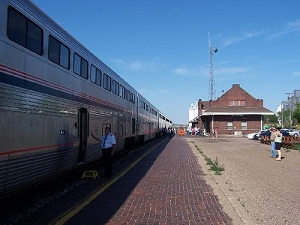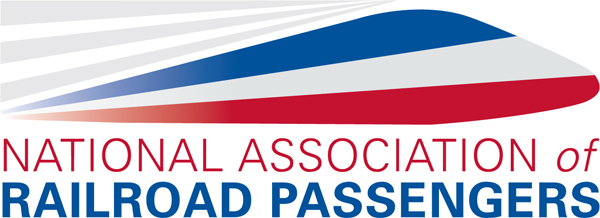NPR report on oilfield workers’ Amtrak use was timely, but biased
December 10, 2012
Written By Malcolm Kenton
National Public Radio aired a report on Friday morning on the growing number of riders Amtrak’s Empire Builder is carrying to and from their jobs in the booming oil shale region of western North Dakota and eastern Montana. While NPR deserves credit for highlighting a story that most media outlets have overlooked – that so many oilfield workers find the one daily train to be the most convenient and affordable way to access the region. This is due to the fact that taking the train is more cost-effective than driving the very long distances that many workers travel to get to the shale region, and that very few airlines serve the area, and those that do are able to charge fares that are usually more than double Amtrak’s coach fares.

But NPR made the common error of referring to Amtrak as “money-losing” and “government subsidized” without acknowledging that highways and aviation are subsidized to an even greater degree, and that the airlines also lose money on low-volume flights to smaller communities like Williston, ND. NPR interviewed an Empire Builder passenger who described himself as a libertarian who opposes government subsidies for transportation, but still found Amtrak to be the best travel choice for his needs. The interviewer did not press him to defend his use of government-subsidized highways like he did with regard to the train.
Amtrak has received less money from the Federal government in its 41-year history than the Highway Trust Fund received from the general fund just in the last four years. In 2011, 41% of the $133 billion spent on highways came from payments other than the gas tax, tolls, and vehicle taxes and fees. This amounts to more than $50 billion in subsidy in one year, while NPR chooses to highlight Amtrak’s "losing" a comparatively minute approximately $2 billion per year.
The money the federal government has spent to make the well-used Empire Builder possible was not “lost,” it was spent to provide a basic transportation service that makes productive economic activity possible, just like that spent on the parallel US Highway 2. The press should hold air and road transportation to the same standard as rail, and give passenger train advocates a chance to respond to misleading claims about “money-losing trains.”
